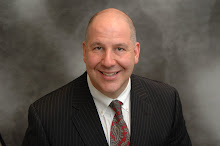The recently enacted Mortgage Loan Industry Licensing and Consumer Protection Law, 7 Pa C.S.A. §6101, Et Seq. (“MLILCP”) - - repealing much of the Mortgage Bankers and Brokers and Consumer Equity Protection Act (“MBBA”) and all of the Secondary Mortgage Loan Act (“SMLA”) - - tightens regulation of individuals soliciting mortgage loans, increases education requirements for mortgage professionals, and enhances the Pennsylvania Department of Banking’s (“DOB”) powers.
“Mortgage Originator” Licensing
MLILCP establishes a new licensing category of "mortgage originator" defined as an individual not otherwise licensed soliciting, negotiating or accepting mortgage loan applications having direct contact with consumers.
Mortgage originators are prohibited from engaging in the mortgage loan business unless employed and supervised by a licensed mortgage broker, mortgage lender or mortgage loan correspondent and assigned to a licensed location.
Employer licensees must maintain a list of all current and former originators and, if they suspect illegal activity, provide the DOB with written notification and proposed corrective measures.
Increased Education and Test Requirements
MLILCP substantially expands mortgage licensees’ current education requirements.
To obtain a new license, a mortgage originator license applicant must have successfully completed a minimum of 12 hours of professional education instruction and passed a new testing program regarding first and secondary mortgage loan business and various relevant federal and state laws.
To maintain a license, a mortgage broker, mortgage lender or mortgage loan correspondent must demonstrate that at least one person from each licensed office who is not a mortgage originator and all mortgage originators employed by the licensee have attended at least six hours of continuing education per year.
Licensing Scope Expanded
MLILCP expands the coverage of Pennsylvania's mortgage banking laws including repealing the MBBA’s licensing exemption for persons originating less than three first mortgage loans per year and the SMLA’s licensing exemption for a person originating two or fewer secondary mortgage loans per year.
Mortgage Loan Payoff Procedure
MLILCP requires a mortgage lender upon payment in full to cancel any insurance, stamp any note "paid in full" or "canceled," and return the loan agreement or note to the consumer within 60 days.
Restrictions on First Mortgages
Whereas the MBBA did not restrict fees a licensee could charge, MLILCP now specifies which fees a licensees may charge on first mortgage loans for title examination, credit reports, appraisals, notaries, tax service and other fees actually related to the processing of a mortgage loan application or making a mortgage loan when such fees are actually paid or incurred by the licensee.
Additionally, MLILCP limits application fees to not more than 3% of the original principal and bars charging a non-refundable "application fee" to cover overhead processing costs beyond 3% application fee that can only be charged on closed loans.
MLILCP also limits delinquency charges on second mortgage loans of $20, or 10 percent of each payment, whichever is greater for a payment which is more than 15 days late.
Additionally, beyond requiring that payment and acceptance of a broker's fee comply with the Real Estate Settlement Procedures Act, (“RESPA”), MLILCP requires compliance with laws including RESPA, Truth in Lending Act, and Equal Credit Opportunity Act.
Higher Penalties
MLILCP increases penalties for violations from $2,000 to $10,000 per offense.
Wednesday, September 30, 2009
Subscribe to:
Comments (Atom)
